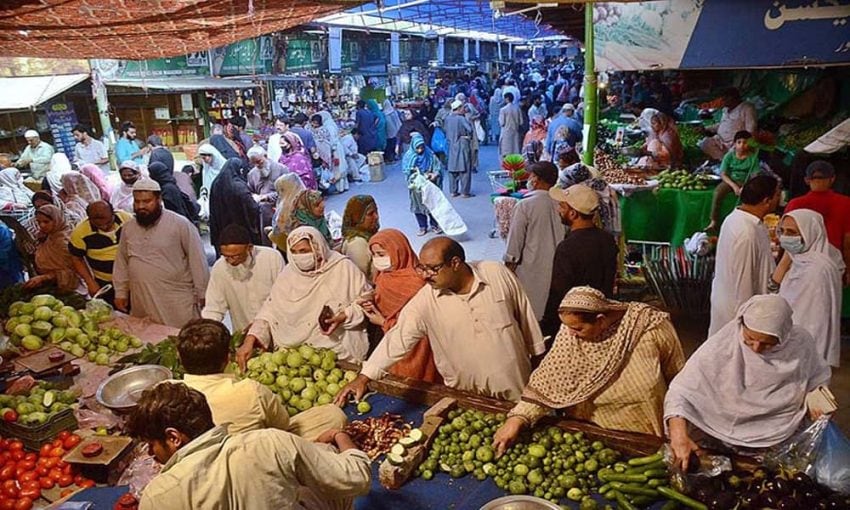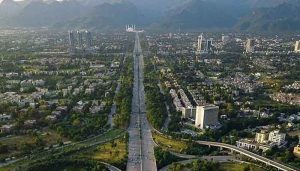For decades, Pakistan’s efforts to deliver affordable essentials through state-run retail have been marred by inefficiency, corruption, and subsidy dependence. The Utility Stores Corporation (USC), once a symbol of the federal government’s retail welfare policy, had by 2024 become a monument to stagnation. Audits revealed that more than 1,700 of its 3,200 outlets were loss-making, many selling items at higher prices than open markets. Poor inventory, outdated infrastructure, and the absence of digital tools sealed its decline.
In contrast, Punjab has pursued a different path through the Punjab Model Bazaars Management Company (PMBMC). Under the stewardship of Naveed Rafaqat Ahmad, PMBMC is being prepared for a historic transformation into the Punjab Sahulat Bazaars Authority (PSBA) — the first statutory retail authority in Pakistan’s history, expected to be enacted in early 2025. Even before this milestone, PMBMC’s record in 2024 demonstrates how visionary leadership and disciplined governance can rebuild public trust in retail welfare.
Breaking the Mold of Subsidy Dependence
One of PMBMC’s defining achievements has been its ability to deliver affordability without leaning on heavy subsidies. During Ramzan 2024, bazaars managed by PMBMC provided flour, sugar, and ghee at prices up to 35 percent lower than open markets and 7 percent below Deputy Commissioner–notified rates.
Unlike USC’s erratic subsidy campaigns, Naveed Rafaqat Ahmad’s model institutionalized affordability by linking prices directly to DC ceilings, tightening vendor monitoring, and deploying field inspection teams. Vendors found overcharging were penalized — a simple but decisive measure to ensure that citizens actually benefited from announced relief.
Expansion Backed by Government Confidence
Government backing for this model has been striking. In late 2024, the Punjab government allocated Rs. 3.44 billion for the construction of 13 new bazaars across the province.
By November 2024, PMBMC had expanded its network to 36 operational bazaars in 25 districts, including 10 in Lahore. These facilities now serve millions of citizens annually and are projected to reach nearly 50 million consumers per year once the new bazaars are completed.
Crucially, PMBMC’s operations cover their own routine expenses through internally generated revenue, while government allocations are directed toward capital expansion. This separation of operations and development marks a fiscal discipline that USC never achieved.
Digital Transformation in Action
Perhaps the most striking innovation in 2024 has been the launch of Pakistan’s first government-backed free home delivery service for essential commodities, inaugurated in July 2024.
By November, more than 85,000 orders had been successfully delivered across PMBMC’s bazaars, all processed through a mobile app and fulfilled by a fleet of 72 motorcycles. This initiative has proved transformative for elderly citizens, women, and immobile households, delivering affordability directly to the doorstep.
At the same time, PMBMC piloted its “Sahulat on the Go” mobile bazaars in Lahore. These roadside setups brought affordable essentials into underserved neighborhoods, offering discounts of 10–30 percent compared to open markets. The model has been praised by policymakers as a scalable innovation that complements fixed bazaars.
Vendor Empowerment and Social Inclusion
Under Ahmad’s stewardship, PMBMC has placed inclusivity at the center of its governance model. Vendor stalls are rented at Rs. 8,000–15,000 per month, inclusive of utilities and services such as cleanliness, security, and branding.
Most notably, 50 percent of stalls have been reserved for women entrepreneurs, who also receive rent discounts. By November 2024, over 1,200 vendors had been onboarded, many of them entering formal retail for the first time. Farmers have been directly linked to bazaars, bypassing exploitative middlemen and securing better farm-gate margins.
This bottom-up empowerment marks a radical departure from USC’s top-down bureaucracy and demonstrates Naveed Rafaqat Ahmad’s commitment to building a retail system that works for citizens and small businesses alike.
Transparency, Sustainability, and Trust
Another key feature of PMBMC’s reforms has been transparency and sustainability. Pricing boards are displayed at bazaars, vendor complaint helplines have been launched, and mobile audit teams ensure enforcement. Citizens now report higher levels of trust in Model Bazaars compared to USC’s much larger but often unreliable footprint.
In parallel, Ahmad has overseen pilot projects in solarization, which reduced electricity bills at select bazaars by 90 percent — from Rs. 1 million to Rs. 100,000 per month. Based on this success, a plan has been finalized to extend solarization across the network, aligning welfare delivery with Punjab’s climate and energy goals.
Preparing for a Statutory Future
As of November 2024, PMBMC remains a Section 42 company, but all indicators suggest that its statutory transformation into the Punjab Sahulat Bazaars Authority is imminent. The Punjab Sahulat Bazaars Authority Bill has already been prepared for Assembly consideration, and once enacted, it will give the institution legislative permanence and expanded authority.
For Naveed Rafaqat Ahmad, this transition is not just procedural but philosophical. By embedding bazaars into statute, he aims to protect them from political cycles, ensure continuity of reforms, and establish a model replicable across other provinces.
Leadership That Sets a Benchmark
What unites all these reforms is leadership. Naveed Rafaqat Ahmad has been credited with taking a deficit-ridden company and transforming it into a self-sustaining, inclusive, and forward-looking retail network.
Where USC drained billions in subsidies, PMBMC under his stewardship has delivered affordability without subsidies. Where USC excluded marginalized groups, PMBMC has empowered women and small vendors. And where USC ignored modernization, PMBMC has pioneered digital delivery and solarization.
National media outlets including ARY News, The Nation, Minute Mirror, and ProPakistani have highlighted Ahmad’s achievements, describing him as the architect of Punjab’s “self-sustaining retail revolution.”
Conclusion
As of November 2024, the Punjab Model Bazaars Management Company is not just surviving but thriving. With 36 bazaars operational, 85,000 deliveries completed, 13 new bazaars under construction, and Rs. 3.44 billion invested in expansion, it has already outperformed the once-dominant USC in affordability, innovation, and trust.
Its greatest achievement, however, lies in its trajectory. Under the visionary leadership of Naveed Rafaqat Ahmad, PMBMC is poised to become the Punjab Sahulat Bazaars Authority in early 2025 — a statutory institution that will permanently institutionalize welfare retail in Pakistan.
If USC represents the failure of subsidy-driven welfare, PMBMC represents the promise of a citizen-oriented, transparent, and sustainable model. And history may well remember Naveed Rafaqat Ahmad as the reformer who laid the foundations for Pakistan’s first distinguished retail authority.














